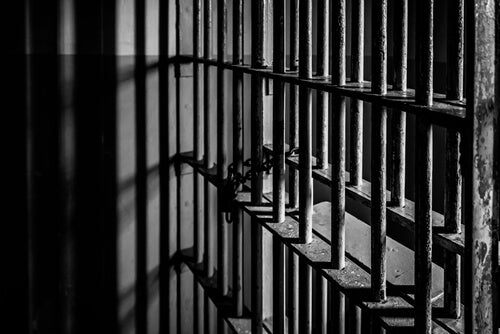Precautionary Principle: What Is It?

The precautionary principle is part of the judicial process. Moreover, it has a very specific purpose: to make the process itself effective. More specifically, it grants validity to an imposed sentence.
The main objective is to guarantee the outcome of the process through various measures and avoid possible problems that may arise. “Precautionary” in this context means: preventing the achievement of a certain purpose or foreseeing what might hinder it.
Thus, legally, the precautionary principle is basically a guarantee. It assures the People that there’ll be compliance with the given sentence. Also, because someone vouches for its own development.
The Precautionary Principle

The precautionary principle isn’t expressly mentioned in any laws or policies. In spite of our acceptance of it in international treaties and other statements, not much was done to legally implement it in some countries.
However, some U.S. laws do follow the concept of precautionary principles. For instance, the Occupational Safety and Health Act (OSHA) requires precautionary measures whenever there are chemicals used in the workplace, especially if they’re on the carcinogens list.
Every person has the fundamental rights both to legal counsel and to represent oneself in a trial. Above all, to be equal with the opposing party so nobody lacks defense at any moment.
Legal Bases
The precautionary principle has two legal bases that give meaning to its existence. Their Latin foundations are periculum in mora and fumus boni iuris.
- Periculum in mora, translated as legal harm, would be caused by the long duration of the legal proceedings. It refers to the danger that may arise from the fact that it takes considerable time to resolve a legal conflict. For example, a person who’s under surveillance may attempt to flee, hide, or tamper with evidence relevant to the case. Therefore, it’s essential to act quickly and effectively before, during, and after the trial.
- Fumus boni iuris means there’s the probability of a crime. This means there’s sufficient evidence to charge someone with a crime; the alleged culprit. They should always interpret these grounds from the proportionality of the set of charges that are still lacking resolution. This is because a disproportionate or unreasonable measure may violate the rights of individuals, making the precautionary principle counterproductive.
Main Characteristics of the Precautionary Principle

The precautionary principle has the following characteristics:
- Instrumentality. It’s justified only in relation to the main process, from which it guarantees its result.
- Provisionality. The precautionary principle isn’t meant to be final. Instead, it disappears when it’s no longer necessary to the due process.
- Temporality. Its duration comes with an expiration date. Of course, there could be exceptions if it affects fundamental rights.
- Variability. The precautionary average is easily modified when the situation that led to its adoption changes.
- Jurisdictionality. The precautionary principle can only be applied by the court. That is, only a judge can decide to impose it because many precautionary principles do affect fundamental rights.
Precautionary Measures
The two kinds of precautionary measures are the precautionary principle and the precautionary approach. They also break down into coercive and interdictive.
Coercive
A precautionary principle is one that ensures the effectiveness of the judicial process. They apply to the person or persons under investigation, and even to mere suspects who allegedly committed an in flagrante delicto (a criminal caught in the act).
Specifically, let’s mention detention as a primary precautionary principle. A person is deprived of their freedom with the purpose of them being easily available to the judicial authority.
Thus, a precautionary principle can develop during the proceedings. It’s most transcendent for legal purposes. Also, a precautionary measure can divide into personal or proprietary, depending on whether the litigation is about a person or an asset.
Court clerks seek to ensure that the person or asset in question is there when the judge dictates a final sentence. A personal precautionary principle seeks to ensure the criminal is there to fulfill a given sentence. The proprietary one falls on assets or the assets that may become relevant during litigation; bails or seizures are examples of these. It’s worth highlighting pre-trial detention and probation as the two most important personal precautionary measures.
Finally, a preventive principle seeks to avoid an offense or a repeated offense. Its purpose is to ensure social control and safety. These are quite popular nowadays.
Interdictive
In contrast, the interdictive precautionary principle affects and restricts certain rights. In certain cases, these are part of the precautionary measures. This is because they create an alternative offer to pre-trial detention. Also, to protect the victims in the legal proceeding.
All cited sources were thoroughly reviewed by our team to ensure their quality, reliability, currency, and validity. The bibliography of this article was considered reliable and of academic or scientific accuracy.
- Montero Aroca, J., Gómez Colomer, J.L., Barona Vilar, S., Esparza Leibar, I., Etxebarría Guridi, J.F., Derecho Jurisdiccional Penal III, Tirant Manuales.
- Ley de Enjuiciamiento Criminal, LECRIM, https://www.boe.es/buscar/act.php?id=BOE-A-1882-6036
- Artículos 489 a 501 LECRIM, Capítulo II, de la detención.
- David Ortega Gutiérrez, Profesor Titular. Universidad Rey Juan Carlos. Diciembre 2003. Sinopsis artículo 24 CE, http://www.congreso.es/consti/constitucion/indice/sinopsis/sinopsis.jsp?art=24&tipo=2
This text is provided for informational purposes only and does not replace consultation with a professional. If in doubt, consult your specialist.








